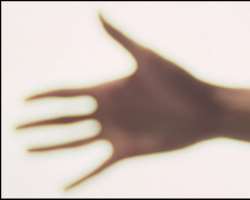CAN FINGER LENGTH PREDICT YOUR RISK OF DISEASE?

I can guarantee that after reading this, if you are male, then you will examine the length of your fingers. Well, I did anyway. Why? Because a study in the British Journal of Cancer suggests that men whose index finger is longer than their ring finger were significantly less likely to develop prostate cancer.
I've done a brief report about it which is on the health pages.
This research needs several health warnings and caveats. Just because your index finger is longer than you ring finger, it does not mean that you are in the clear with regards to prostate cancer. In fact, in the study 347 men (22.8%) whose index finger was longer than their ring finger, had prostate cancer. But that compared to 936 (30.8%) of the healthy controls giving an odds ratio of 0.67. In plain terms it means those men whose index fingers were longer were a third less likely to have prostate cancer. And just because your ring finger is shorter, or the same length as your index finger, it does not mean you will get prostate cancer. Important that we clear that up at the start. Have you looked at your fingers yet?
Furthermore, since this appears to be the first study linking relative finger length to prostate cancer risk, it is absolutely crucial that the findings are repeated in other studies. The medical literature is littered with examples where apparently sound research findings are disproved upon later, broader analysis.
But if the findings are replicated, then it would provide an easy predictor of relative cancer risk.
Professor Ros Eeles from the Institute of Cancer Research and the Royal Marsden Hospital is one of the report authors. She explained that the patients involved in the study were asked a whole load of questions about lifestyle and so on, and the team had decided to include one question about relative finger length. There were not expecting such a definite result.
“We were very surprised by the findings”, she told me. “But there is a good biological explanation: we know that exposure to male or female hormones in utero determines how long your fingers are. We also know that prostate cancer is driven by testosterone levels later in life. Now we have a biologically plausible explanation for some of the early risk factors.”
So can relative finger length predict your risk of any other diseases?
Professor Eeles said a previous study had found a link between exposure to hormones while in the womb and the development of osteoarthritis in men and women, again linked to having an index finger shorter than ring finger.
The research paper contains some comfort for men with comparatively long ring fingers in these terms: “In men, long ring fingers compared with index finger length reflect a more masculine profile, for example, more likely to father a child and a higher sex drive”. Really? And what is the reference source for this claim? It is an article in the Daily Mail from 2000.
The newspaper article and this latest paper on prostate cancer risk make repeated mention of research by Professor John Manning at the University of Liverpool. There are suggestions of a link between finger length and heart disease, breast cancer, autism and even musical ability. But the study groups seem to involve very small numbers of people.
Professor Manning has also suggested an association between prenatal exposure to testosterone, the ratio of digit length and male homosexuality in a study of 176 men.
And there's another study about finger length and depression involving 102 people.
So that's osteoarthritis, heart disease, breast cancer, autism, musical ability, sexual preference and depression, not to mention sex drive, male fertility and now prostate cancer. Oh, and I forgot to mention, sporting ability, exam success, aggression and earning power. All from finger length?
The new hand pattern research in the British Journal of Cancer is interesting, not least because it involves a decent number of volunteers, but I sincerely hope it doesn't give men with short, stubby index fingers any sleepless nights chewing on their fingernails.
